The rise of online trading has brought significant convenience and accessibility but also introduced various scams. This chapter specifically investigates the ‘eToro scam,’ offering an overview of common deceptive practices in online trading and guidance on spotting potential red flags with platforms like eToro.
Common Scams in the Online Trading Industry
1. Ponzi Schemes
These schemes promise high returns with little risk but pay profits to earlier investors using the capital of newer investors. Eventually, when there are not enough new investors, the scheme collapses, leaving later investors without their money.
2. Signal Seller Scams
Signal sellers offer a system that purports to identify favorable times for buying or selling a currency pair, stock, or other assets. They charge a daily, weekly, or monthly fee but often fail to deliver on their promised support or returns.
3. Broker Fraud
Some fraudulent brokers manipulate trading platforms to create unfavorable conditions for traders, such as unreasonable spreads, unwarranted slippage, or outright non-payment of funds.
4. High Yield Investment Programs (HYIP)
HYIPs are a type of Ponzi scheme that promises unsustainably high return on investment by paying previous investors with the money invested by new investors.
5. Account Managers
Some scammers pose as professional account managers, promising to manage your investments and deliver high returns. Often, these account managers may be unauthorized traders who end up mismanaging funds or engaging in risky trades without the owner’s consent.
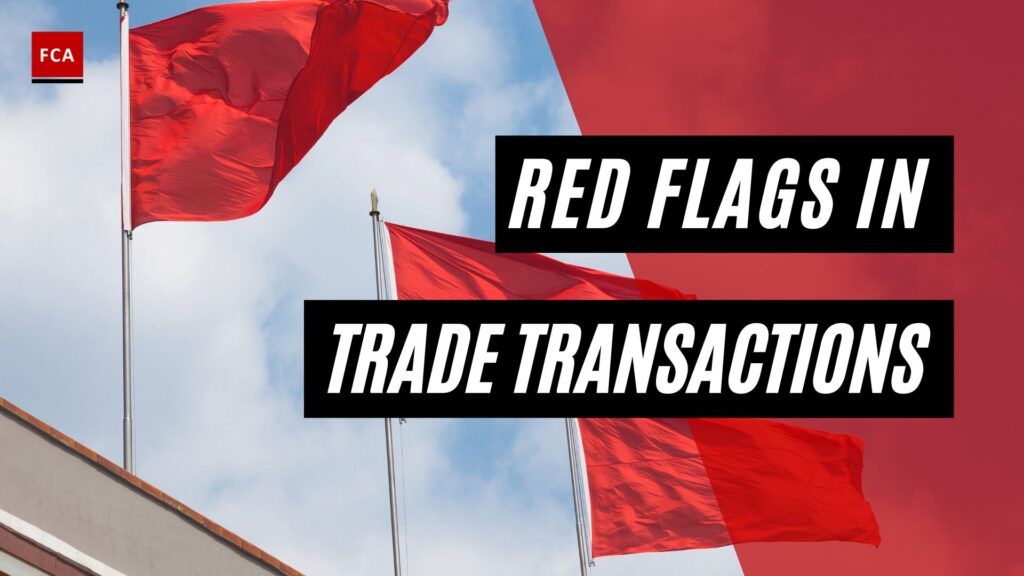
How to Identify Red Flags in Online Trading Platforms
1. Lack of Regulation
- Key Indicator: The platform is not regulated by any recognized financial regulatory body.
- Why It Matters: Regulation ensures that trading platforms adhere to specific standards and practices, offering a level of protection to traders.
2. Unrealistic Promises
- Key Indicator: Promises of exceptionally high or guaranteed returns with little or no risk.
- Why It Matters: In trading, there is always a risk, and no returns can be guaranteed.
3. Opaque Fee Structures
- Key Indicator: The platform does not clearly disclose fees or commissions.
- Why It Matters: Transparency in fee structures is crucial in building trust. Hidden fees can significantly affect profitability.
4. Complex Withdrawal Processes
- Key Indicator: Difficulty in withdrawing funds, including high withdrawal fees, long delays, or excessive paperwork.
- Why It Matters: This could be an attempt to keep funds on the platform to benefit from new or naïve traders.
5. Aggressive Marketing Tactics
- Key Indicator: Persistent or high-pressure sales tactics urging you to invest quickly.
- Why It Matters: Reputable platforms do not need to pressure traders to invest and generally provide enough information for an informed decision.
6. Lack of Support or Poor Customer Service
- Key Indicator: Slow or no response to inquiries or technical issues.
- Why It Matters: Active support is crucial, especially when dealing with financial transactions.
Protective Measures
- Research: Always research a trading platform thoroughly before investing.
- Check Regulatory Status: Verify whether the broker is registered with a regulatory body such as the FCA, CySEC, or SEC.
- Read Reviews and Testimonials: Look for feedback from other users on various forums, websites, and within the trading community.
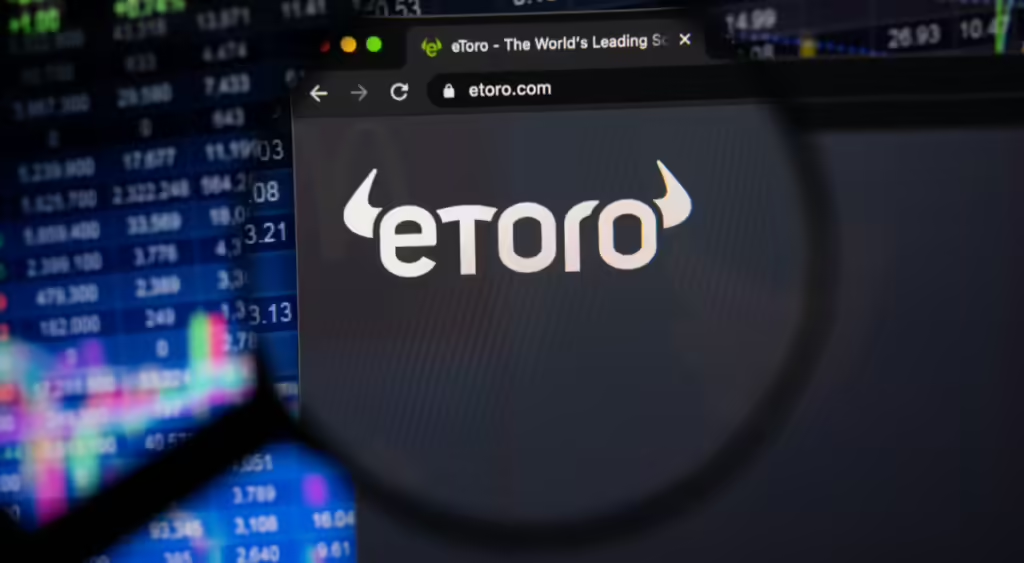
Understanding eToro’s Legitimacy
eToro has established itself as a prominent player in the online trading community, known for its innovation in social trading. Ensuring the legitimacy of a trading platform is crucial for traders, especially given the potential risks of online scams. This section provides a detailed background on eToro, including its licensing and regulatory compliance, as well as a discussion of its reputation within the financial trading community.
Licensing and Regulatory Compliance
Regulatory Framework
eToro operates under the oversight of several respected financial regulatory authorities globally, which helps ensure its operations adhere to strict legal and ethical standards:
- Cyprus Securities and Exchange Commission (CySEC): As a Cyprus-based company, eToro is primarily regulated by CySEC, which is aligned with European MiFID (Markets in Financial Instruments Directive) regulations. This ensures high levels of investor protection and market integrity.
- Financial Conduct Authority (FCA): In the United Kingdom, eToro is regulated by the FCA, one of the leading financial regulatory bodies globally. The FCA’s regulations are designed to ensure fair and ethical business practices.
- Australian Securities and Investments Commission (ASIC): In Australia, eToro adheres to regulations set by ASIC, which provides oversight to ensure transparency and protection for Australian traders.
These regulatory bodies require eToro to meet stringent criteria, including capital adequacy requirements, compliance with anti-money laundering (AML) procedures, and regular financial reporting.
Client Protection Measures
eToro offers several protections to its clients as part of its commitment to regulatory compliance:
- Segregated Accounts: Clients’ funds are held in segregated bank accounts, separate from eToro’s own operating funds, providing a layer of security.
- Risk Management: eToro provides features such as stop-loss orders, which help traders manage their risk effectively.
- Negative Balance Protection: Retail clients are protected from losing more money than they have deposited, which is a critical safety measure in volatile trading conditions.
eToro’s Reputation in the Financial Trading Community
Innovation in Social Trading
eToro has been a pioneer in the field of social trading, which has significantly influenced the online trading industry. This approach allows users to follow, copy, and interact with other traders directly through their platform. This feature is particularly appealing to new traders and those looking to leverage the experience of more seasoned traders.
User Experience and Customer Feedback
- Platform Usability: eToro is often praised for its user-friendly interface, which makes it accessible even to those who are new to trading.
- Customer Support: eToro provides a comprehensive support system including a help center, live chat, and ticket submissions, which enhances user satisfaction.
- Community Trust: Many users express a high level of trust in eToro, partly due to its transparent and client-focused business approach.
Awards and Recognition
Over the years, eToro has received numerous awards for its platform and innovation in the financial technology sector, reinforcing its status as a reputable and leading trading platform.
Criticisms and Controversies
Like any major platform, eToro has faced criticisms, particularly regarding withdrawal delays and customer service responsiveness during peak times. However, it actively works on addressing these issues as part of its commitment to user satisfaction.
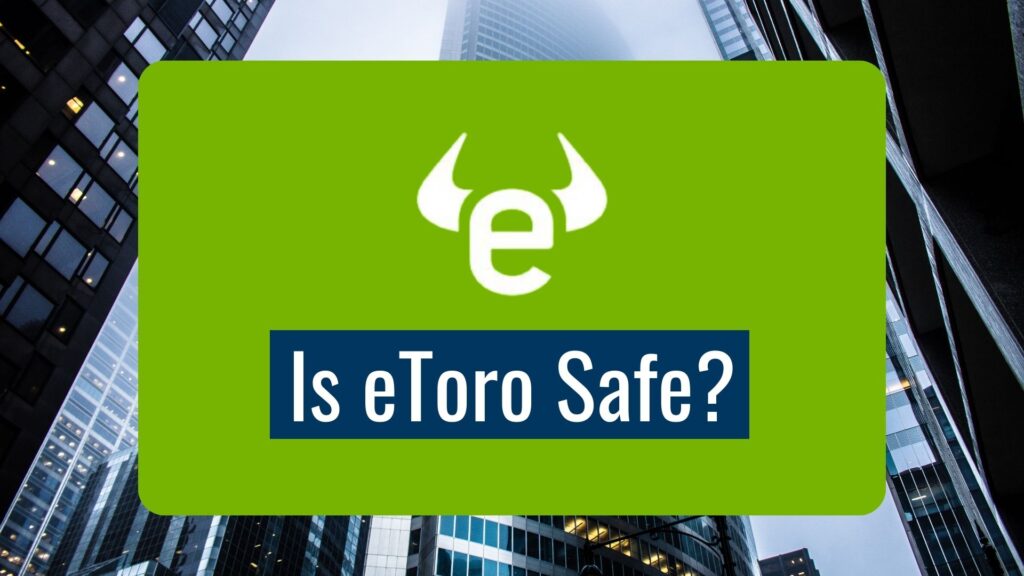
How eToro Protects Users
eToro places a strong emphasis on security and user protection, implementing a variety of measures to ensure a safe trading environment. This section provides an overview of the security measures and user protection policies eToro employs, and how these compare to industry standards.
Security Measures on eToro
1. Data Encryption
- Description: eToro uses advanced SSL (Secure Socket Layer) technology to encrypt data transmitted between users’ devices and eToro servers, ensuring that personal and financial information is secure from unauthorized access.
- Industry Standard: SSL encryption is a common requirement across financial platforms, and eToro meets this standard.
2. Two-Factor Authentication (2FA)
- Description: eToro supports two-factor authentication, which provides an additional layer of security by requiring users to verify their identity using two different methods before accessing their accounts.
- Industry Standard: 2FA is increasingly becoming an industry norm for financial services and trading platforms, adding an essential layer of security.
3. Segregated Accounts
- Description: eToro keeps clients’ funds in segregated accounts, ensuring that users’ money is kept separate from eToro’s own business accounts. This is crucial in the event of the company’s insolvency.
- Industry Standard: Holding client funds in segregated accounts is a standard regulatory requirement for licensed brokers, aligning eToro with top industry practices.
4. Risk Management Controls
- Description: eToro offers various tools such as stop loss, take profit, and set leverage limits that help users manage their risk when trading.
- Industry Standard: Such tools are typical on major trading platforms, though eToro integrates these features particularly well with its user-friendly interface.
5. Regular Audits
- Description: To comply with regulatory standards, eToro undergoes regular audits by external firms to ensure financial compliance and operational integrity.
- Industry Standard: Regular audits are standard practice among regulated brokers, ensuring transparency and reliability.
6. Negative Balance Protection
- Description: eToro offers negative balance protection, which prevents clients from losing more money than they have in their accounts, safeguarding against volatile market conditions.
- Industry Standard: This feature is mandated by regulators in certain jurisdictions (such as the EU), and eToro extends this protection to all its retail clients globally, not just where it is required by law.
User Protection Policies
1. Anti-Money Laundering (AML) and Know Your Customer (KYC)
- Description: eToro follows strict AML and KYC procedures to prevent financial crimes. These include verifying the identity of its users and monitoring transaction patterns.
- Industry Standard: AML and KYC are regulatory requirements for all legitimate trading platforms, designed to combat fraud and money laundering.
2. Privacy Policy
- Description: eToro has a detailed privacy policy that outlines how user data is collected, used, and protected, ensuring users’ personal information is handled securely.
- Industry Standard: Privacy policies are crucial for compliance with data protection regulations like GDPR, and eToro’s policies are robust in this regard.
3. Investor Compensation Fund Membership
- Description: eToro is a member of investor compensation funds in jurisdictions where it operates. This provides an additional layer of security to reimburse clients in extreme cases of broker failure.
- Industry Standard: Membership in such funds is typical for brokers regulated in Europe and other developed markets.
eToro’s security measures and user protection policies are comprehensive and align with or exceed industry standards. These efforts demonstrate eToro’s commitment to providing a secure and reliable trading environment, making it a trusted platform for traders around the world.

Common Types of Scams in Online Trading
Online trading platforms like eToro provide valuable opportunities for traders, but they also attract cybercriminals who use various scams to defraud users. Here, we explore common types of scams such as phishing, account hacking, and misleading trading advice. Understanding these can help traders recognize and avoid scams on any trading platform.
Phishing Scams
Description:
Phishing is a fraudulent attempt to obtain sensitive information such as usernames, passwords, and credit card details by disguising as a trustworthy entity. Phishers may use emails, fake websites, or social media messages that appear to come from legitimate sources.
How to Recognize:
- Unexpected Requests: Legitimate companies never ask for sensitive information via email.
- Links in Emails: Hover over any links to see if they direct you to unexpected websites.
- Poor Grammar and Spelling: Official communications are typically well-written.
How to Avoid:
- Verify Sources: Contact the company directly using a phone number or email address from their official website.
- Do Not Click Suspicious Links: Always enter the URL manually in your browser.
- Use Antivirus Software: Ensure it includes phishing protection.
Account Hacking
Description:
Account hacking involves unauthorized access to your trading account, often due to compromised login details. Hackers might execute unauthorized trades or withdraw funds.
How to Recognize:
- Unexpected Account Activity: Unauthorized trades or unrecognized withdrawals.
- Login Alerts: If your platform sends notifications of logins from new devices or locations.
How to Avoid:
- Use Strong, Unique Passwords: Consider a password manager to generate and store them.
- Enable Two-Factor Authentication (2FA): Adds an extra layer of security.
- Regular Monitoring: Frequently check your account for any unauthorized activities.
Misleading Trading Advice
Description:
This scam involves providing false or misleading information to manipulate markets or traders’ decisions. It might be through “pump and dump” schemes or falsely touting stocks (“boiler room” tactics).
How to Recognize:
- Unsolicited Advice: Be wary of trading tips or advice that comes unsolicited via email, social media, or phone.
- Too Good to Be True: Promises of high returns with little or no risk.
- Pressure to Act Quickly: Scammers often create a sense of urgency to prevent you from doing due diligence.
How to Avoid:
- Research: Independently verify all information before making trading decisions.
- Consult Trusted Sources: Use well-known financial news websites and verified analysts.
- Be Skeptical: Especially of advice that involves lesser-known or highly volatile stocks.
General Tips to Stay Safe on Platforms Like eToro
- Educate Yourself: Familiarize yourself with common scam tactics.
- Use Official Apps and Platforms: Download apps from official app stores and log in to your account through verified platforms only.
- Keep Software Updated: Ensure your operating system, browser, and any trading-related applications are up to date to protect against security vulnerabilities.
- Be Cautious with Your Data: Be conservative about what personal information you share online, especially on social media.
- Regularly Review Account Statements: Check for any unauthorized or suspicious activity.
By staying vigilant and informed, traders can protect themselves from common online trading scams and safely engage with platforms like eToro to pursue their trading objectives.
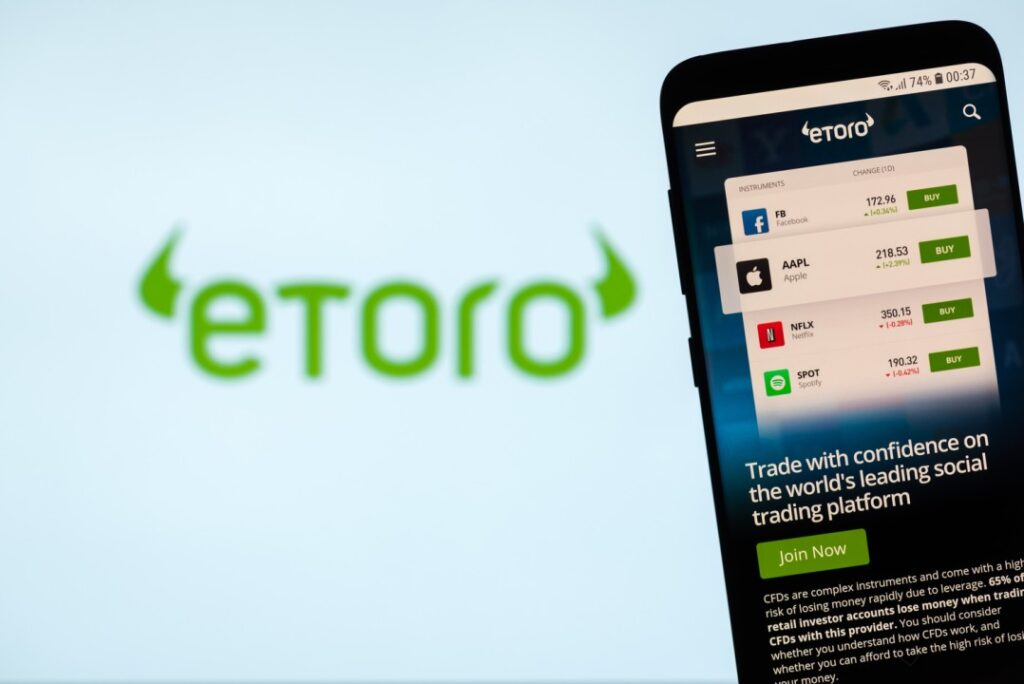
Real User Experiences and Case Studies on eToro
Analyzing real user experiences, especially those involving reported scams or negative incidents, can provide valuable insights into the operational challenges and potential vulnerabilities of platforms like eToro. Below, we explore a series of case studies that reflect both genuine issues and common misconceptions associated with the platform. This analysis aims to discern the lessons learned and corrective measures that can be applied.
Case Study 1: Account Hacking Incident
Background
A user reported that their account was hacked, resulting in unauthorized trades that depleted their funds.
Analysis
Upon investigation, it was discovered that the user had reused a password that was compromised in an unrelated data breach. The incident was exacerbated by the lack of two-factor authentication (2FA) on the account.
Lessons Learned
This case highlights the importance of using unique, strong passwords for online trading accounts and activating 2FA to enhance security. eToro responded by urging users to update their security settings and providing additional resources on securing accounts.
Case Study 2: Withdrawal Delays
Background
Multiple users reported experiencing significant delays in withdrawing funds, causing frustration and raising concerns about eToro’s reliability.
Analysis
The delays were often due to incomplete user verification processes or high volumes of withdrawal requests during market turbulence. In some cases, users were not aware of the documentation required to complete the verification.
Lessons Learned
This situation underscores the need for clear communication from eToro regarding the expected timelines and requirements for withdrawals. It also highlights the necessity for users to complete their verification early and understand the conditions that might affect withdrawal times.
Case Study 3: Misleading Trading Advice
Background
A novice trader followed trading advice from a supposedly experienced trader on eToro’s social trading platform, resulting in significant losses.
Analysis
The experienced trader used aggressive strategies suitable for their risk tolerance but not for the novice. The platform’s social trading feature, while innovative, sometimes led to misconceptions about the suitability of certain trades or strategies for all users.
Lessons Learned
This case illustrates the risks associated with social trading platforms, where users may uncritically follow the trades of others without considering their own risk profiles. It also emphasizes the importance of eToro in educating its users about the risks of mimicking others’ trading activities without adequate knowledge or strategy alignment.
Case Study 4: Compliance and Regulatory Issues
Background
Users from various jurisdictions complained about suddenly being unable to access certain features on eToro, such as high leverage options.
Analysis
These changes were often due to regulatory adjustments in users’ home countries. eToro complies with local regulations, which can sometimes restrict the availability of certain trading options.
Lessons Learned
This scenario highlights the dynamic nature of regulatory environments in the financial sector and the need for platforms like eToro to adapt swiftly. For users, it’s a reminder of the importance of staying informed about how local regulations might impact their trading activities.
eToro and Money Management
Effective money management is crucial for ensuring a successful and sustainable trading experience on platforms like eToro. Here, we provide essential tips for managing money safely on eToro, highlighting the importance of not overextending financial commitments and understanding the risks associated with leverage.
Key Money Management Tips on eToro
1. Set Clear Financial Goals
- Description: Define what you hope to achieve through your trading activities, such as a target return or specific income needs.
- Importance: Setting goals helps tailor your trading strategy and risk level to your financial situation and long-term objectives.
2. Use a Risk Management Strategy
- Description: Implement strategies that limit potential losses, such as stop-loss orders, which automatically close a position at a specified price.
- Importance: This helps prevent large losses and protects your capital, especially important in volatile markets.
3. Understand and Manage Leverage
- Description: Leverage allows you to control a larger position than your existing capital would ordinarily permit, amplifying both gains and losses.
- Importance: While leverage can increase potential profits, it also increases risk. It’s vital to understand how leverage works and use it judiciously to avoid significant losses that could exceed your initial investment.
4. Diversify Your Portfolio
- Description: Spread your investments across various assets to reduce risk.
- Importance: Diversification can protect against losses, as the poor performance of some investments may be offset by stronger performance in others.
5. Regularly Review Your Portfolio
- Description: Periodically assess your portfolio’s performance and make adjustments as needed.
- Importance: This helps ensure your investments are still aligned with your risk tolerance and financial goals, and you can adjust your strategies based on market conditions.
6. Avoid Emotional Trading
- Description: Make trading decisions based on analysis and strategy rather than impulses or emotions.
- Importance: Emotional trading can lead to rash decisions, such as chasing losses or risking too much on an uncertain trade.
7. Utilize Demo Accounts for Practice
- Description: Before trading with real money, practice with a demo account to understand the platform and test strategies without financial risk.
- Importance: This builds your trading skills and confidence, helping you make more informed trading decisions when using real money.
8. Keep Learning
- Description: Continuously educate yourself about financial markets, trading strategies, and money management techniques.
- Importance: Ongoing education can enhance your trading abilities and enable you to adapt to changing market conditions.
The Importance of Not Overextending Financial Commitments
- Financial Stability: Only invest money that you can afford to lose. Do not use essential funds for trading, as this can lead to financial strain.
- Risk Tolerance: Understand your personal risk tolerance. Avoid placing yourself in a position where the financial risk is too great, potentially leading to stressful trading or forced sell-offs at losses.
Understanding these principles of money management can profoundly impact your trading effectiveness and safety on eToro. By managing your money wisely, you can maintain control over your financial health and pursue your trading goals with a balanced and informed approach.

Legal Recourse and User Rights on eToro
When trading on platforms like eToro, it’s crucial for users to understand their legal rights and the steps they can take if they fall victim to a scam. This section outlines the legal recourse available to users, how to contact regulatory bodies, and the importance of reporting scams.
Steps to Take if You Suspect a Scam on eToro
1. Contact eToro Support Immediately
- Action: If you suspect fraudulent activity or have been involved in a scam on eToro, the first step should be to contact eToro’s customer support directly. Provide them with all relevant information about your issue.
- Importance: Prompt communication can help prevent further damage and initiate an internal investigation by eToro.
2. Document Everything
- Action: Keep records of all communications, transactions, and any other relevant interactions on the platform.
- Importance: Documentation is crucial for substantiating your claims, whether to eToro, regulatory bodies, or even in legal proceedings.
3. Report to Regulatory Authorities
- Action: Report the scam to the financial regulatory authority overseeing eToro in your jurisdiction (e.g., CySEC in Cyprus, FCA in the UK, or ASIC in Australia).
- Importance: Regulatory bodies have the power to investigate and take action against fraudulent activities. Reporting also helps protect other users by raising awareness and possibly prompting tighter regulatory measures.
How to Contact Regulatory Bodies
- Find the Relevant Authority: Identify the financial regulator that licenses and oversees eToro in your region. eToro is regulated by several authorities globally, so your location will determine which regulator to contact.
- Use Official Channels: Go to the official website of the regulatory body to find contact details for reporting fraud or scams. Most regulators have online forms, email addresses, or phone numbers specifically for such reports.
Importance of Reporting Scams
Protecting Yourself and Others
- Prevent Further Losses: Reporting a scam can help you potentially recover lost funds and prevent further unauthorized transactions.
- Community Safety: By reporting scams, you contribute to the safety and integrity of the trading community. Your report could trigger investigations that may prevent others from being scammed.
Legal Recourse
- Civil Action: Depending on the nature of the scam and the losses incurred, you may have the option to pursue civil legal action against the perpetrators.
- Legal Consultation: Consider consulting a legal professional who specializes in financial fraud. They can offer guidance specific to your case and jurisdiction.
Additional Measures
- Educate Yourself: Stay informed about the types of scams prevalent in online trading. Knowledge is your first line of defense.
- Use Platform Tools Wisely: Utilize security settings and features offered by eToro, such as two-factor authentication, to enhance your account’s security.
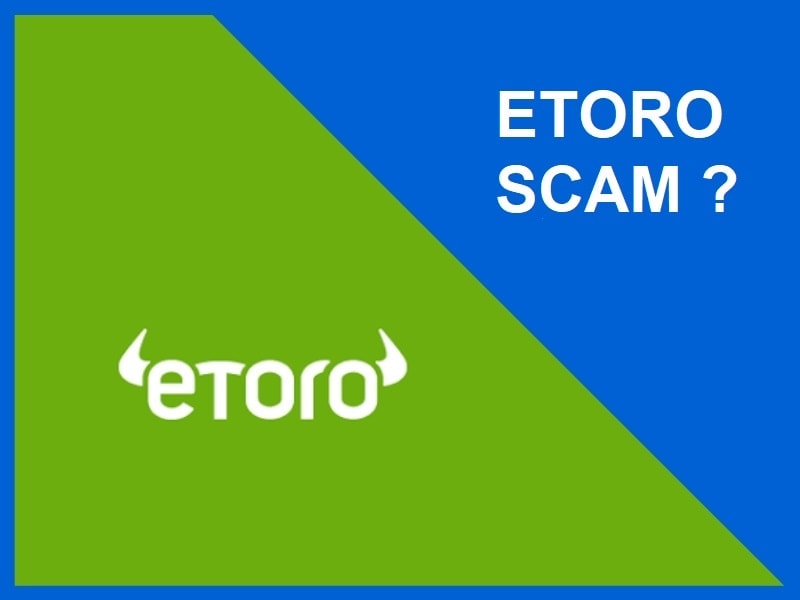
How to Report Suspected Scams on eToro
Reporting suspicious activities or potential scams on eToro is a crucial step in safeguarding your investments and contributing to the security of the trading environment. Below is a step-by-step guide on how to report these activities on eToro, along with contact points for eToro’s customer service and relevant external regulatory authorities.
Step-by-Step Guide to Reporting Scams on eToro
1: Gather Evidence
- Action: Collect all relevant information regarding the suspicious activity. This includes screenshots, transaction details, correspondence, and any other documentation that can substantiate your claim.
- Importance: Having detailed evidence is essential for eToro to investigate and take appropriate action effectively.
2: Contact eToro Customer Service
- Action: Reach out to eToro’s customer support through one of their official contact channels. This can be done via:
- Email: Send a detailed email to their support address.
- Live Chat: Use the live chat feature on the eToro platform for immediate assistance.
- Support Ticket: Submit a support ticket through your account interface with attached evidence.
- Importance: Direct communication with eToro is the fastest way to initiate an investigation into your concerns.
3: Report to Regulatory Authorities
- Action: If you believe the scam involves serious fraud or regulatory breaches, report it to the financial regulator that oversees eToro operations in your jurisdiction. Depending on your location, these could be:
- Cyprus Securities and Exchange Commission (CySEC)
- Financial Conduct Authority (FCA) in the UK
- Australian Securities and Investments Commission (ASIC)
- How to Report:
- Visit the regulator’s official website.
- Look for the consumer protection or complaint section.
- Use the online form or contact details provided to submit your complaint.
- Importance: Regulators have the authority to enforce actions against fraudulent activities and can provide an additional layer of investigation.
4: Follow Up
- Action: After reporting the issue, keep in touch with eToro and any regulatory body you’ve contacted. Provide any additional information they might request and inquire periodically about the status of your report.
- Importance: Following up can help ensure that your report is being actively investigated and keeps you informed about the progress.
Contact Points for eToro’s Customer Service
- Official Website: Visit www.etoro.com and navigate to the “Contact Us” section.
- Email: Find specific email addresses for various issues in the Help Center.
- Phone Support: eToro may provide phone support in specific regions; check their website for applicable phone numbers.
Additional Tips
- Be Precise and Clear: When reporting scams, be as clear and detailed as possible. This helps customer service and regulatory authorities to act quickly and effectively.
- Stay Informed: Regularly update your knowledge about the latest security practices and scam trends in online trading.
- Educate Others: Share your experience and knowledge about scams with fellow traders, helping to create a more informed and vigilant community.
By following these steps and utilizing the provided contact points, you can effectively report suspected scams and contribute to the overall integrity and security of the trading platform.

Preventative Measures and Best Practices for Account Safety on eToro and Other Trading Platforms
Ensuring the safety of your online trading account is critical to protecting your investments and personal information. Here are some best practices and preventative measures you can implement on eToro and other trading platforms to enhance your account security.
Strong Passwords
Importance
A strong password is your first line of defense against unauthorized access to your account.
Best Practices
- Complexity: Use a mix of uppercase letters, lowercase letters, numbers, and special characters.
- Length: Your password should be at least 12 characters long.
- Uniqueness: Use a unique password for your trading account that isn’t shared with any other accounts.
- Password Managers: Consider using a password manager to generate and store complex passwords securely.
Two-Factor Authentication (2FA)
Importance
Two-factor authentication adds an extra layer of security by requiring not only a password and username but also something that only the user has on them, i.e., a piece of information only they should know or have immediately to hand – such as a physical token.
How to Use
- Enable 2FA: Always enable 2FA on your trading platform. This usually involves linking your account to a mobile device or email and requiring a code sent to that device to log in.
- Authenticator Apps: Use an authenticator app like Google Authenticator or Authy, which generate time-limited codes, instead of SMS if possible, as they offer better security.
Secure Network Connections
Importance
Using secure network connections is crucial to prevent interception of data and unauthorized access.
Best Practices
- Avoid Public Wi-Fi: Avoid accessing your trading accounts over public Wi-Fi networks. Use a virtual private network (VPN) if trading in public places.
- Secure Your Home Wi-Fi: Ensure that your home Wi-Fi is secured with strong encryption (WPA2 or WPA3).
- Firewalls: Use firewalls to protect your network from unauthorized access.
Regular Monitoring
Importance
Regularly monitoring account activity can help you quickly detect and respond to unauthorized transactions or breaches.
Best Practices
- Alerts: Set up alerts for logins, trades, and withdrawals. eToro and most platforms offer options to receive notifications for various activities.
- Review Statements: Regularly review your account statements and transaction history for any signs of unauthorized activity.
- Check Sessions: Many platforms allow you to see active sessions and devices; regularly check and log out sessions that do not belong to you.
Update and Educate
Importance
Keeping your software updated and educating yourself about the latest security practices and threats can protect you against new vulnerabilities and scams.
Best Practices
- Software Updates: Keep your trading platform software, mobile apps, and devices’ operating systems up to date.
- Phishing Awareness: Educate yourself about the tactics used in phishing scams and how to recognize fraudulent communication.
- Security Resources: Utilize resources provided by your trading platform for tips on securing your account.
By implementing these best practices, traders can significantly enhance the security of their accounts on platforms like eToro. Always stay informed about new security features and potential threats in the online trading environment.

Future of Online Trading Security
The landscape of online trading security is continuously evolving, driven by technological advancements and the ever-changing nature of cyber threats. As the online trading environment grows more sophisticated, so too do the measures to protect users and their assets. This section explores future trends in online trading security and technological advancements that could enhance user protection against scams.
Technological Advancements in Online Trading Security
1. Biometric Authentication
- Description: Biometric authentication methods, such as fingerprint scans, facial recognition, and voice identification, are becoming more prevalent. These methods provide a more secure layer of protection compared to traditional passwords.
- Future Impact: Biometric data, due to its unique nature, significantly reduces the risk of unauthorized access. We can expect more trading platforms to integrate these technologies, offering users a seamless yet secure access method.
2. Behavioral Biometrics
- Description: This technology analyzes patterns of user behavior such as keystroke dynamics, mouse movements, and even the way a device is held.
- Future Impact: By continuously monitoring and analyzing these patterns, platforms can detect anomalies that may indicate fraudulent activities, providing real-time preventative security without disrupting the user experience.
3. Advanced Encryption Methods
- Description: Encryption technology is advancing with developments such as quantum-resistant algorithms, which anticipate future threats from quantum computing.
- Future Impact: As cybercriminals become more sophisticated, stronger encryption will be crucial in safeguarding data transmission and storage within trading platforms.
4. Blockchain Technology
- Description: Blockchain offers a decentralized record of transactions that can enhance transparency and tamper-resistance.
- Future Impact: Implementing blockchain could revolutionize how trades are recorded, verified, and managed, reducing the opportunity for fraud and enhancing the integrity of online trading platforms.
5. Artificial Intelligence and Machine Learning
- Description: AI and machine learning are already being used to monitor and analyze trading activities to detect patterns indicative of fraudulent behavior.
- Future Impact: These technologies will become more refined, providing more precise anomaly detection and predictive capabilities to prevent scams before they occur.
6. Regulatory Technology (RegTech)
- Description: RegTech involves using technology to help companies comply with regulations efficiently and at a lower cost. This includes monitoring transactions for signs of money laundering or other regulatory breaches.
- Future Impact: As regulations become more stringent, effective compliance using RegTech will be crucial for maintaining platform integrity and user trust.
7. Secure Access Service Edge (SASE)
- Description: SASE is an emerging cybersecurity concept that combines network security functions (such as SWGs, CASB, FWaaS, and ZTNA), with WAN capabilities (like SD-WAN) to support dynamic secure access.
- Future Impact: SASE models will likely become more prevalent, providing more secure cloud-based environments where trading platforms can operate with enhanced security and efficiency.

